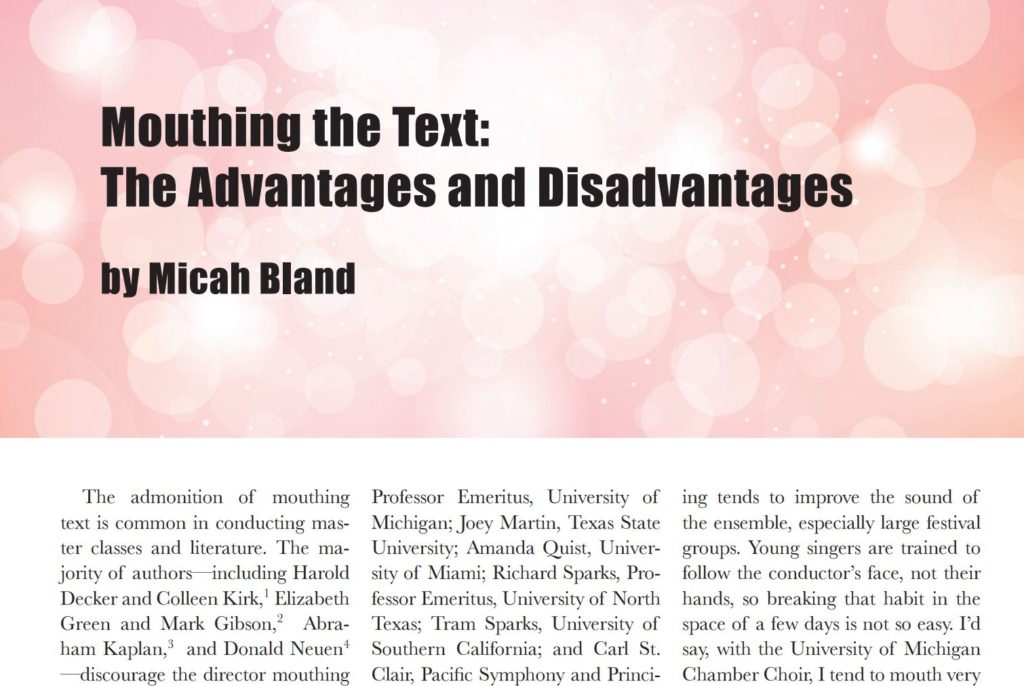
_____________________________
The May 2020 issue of Choral Journal features an article titled “Mouthing the Text: The Advantages and Disadvantages” by Micah Bland. This is a fascinating interview, and you can read it in its entirety online at acda.org/choraljournal. Below is the first question of the interview.
_____________________________
What are some of the advantages to mouthing the words?
Jeffery Ames: Memorization.
Hilary Apfelstadt: Perhaps if the group is uncertain in a homophonic texture, it could be helpful to mouth as a reminder.
Jerry Blackstone: Mouthing can improve vowel formation, and can facilitate conductor/ensemble connection, especially with younger singers. Mouthing is simply another tool for conductor/ensemble communication. Used too much, it loses its effectiveness.
Joey Martin: Mouthing can be a visual reminder of appropriate vowel shapes for developing ensembles. It can also be crucial for reinforcing memory of text (or lack there of…). I’ve found that the younger/older the membership of an ensemble, the more mouthing is needed to achieve ideal results.
Tram Sparks: One advantage of mouthing could be the perceived security and increase in empathic connection between conductor and ensemble. I say “perceived” since it is usually merely a perception on the part of the conductor, and not an expressive or musically effectual connection that actually elicits a corresponding sonic or emotional result. That said, very specific, limited, and intentional mouthing could help a conductor to feel a stronger rapport in a given moment of music making.
Carl St. Clair: Not quite sure that there are any. Having an orchestra or chorus watch your mouthing of words could detract from their focus on your body and hands, which are communicating the essence of the music in one’s heart. Mouthing certainly does nothing to add to the quality of the sound or musical output of an ensemble, choral or otherwise.
What are some of the disadvantages to mouthing the words?
Jeffery Ames: In my opinion, mouthing the words, without any apparent need, prohibits proper preparation for the cue. Oftentimes, I see my choral conducting students mouthing the words. When this happens, they cannot properly execute the shape of the vowel needed in the following word. Of course, the “prep” prepares the next beat by indicating inhalation, vowel shape, dynamic, and character. But one or more of these elements will be missed when mouthing the words, which occurs as a ‘real-time’ event.
Hilary Apfelstadt: The biggest is that the group does not watch the gesture but rather focuses on the conductor’s mouth. It becomes a crutch, I think.
_____________________________
Read the rest of this article (and more!) in the May 2020 issue of Choral Journal, available online at acda.org.


Leave a Reply
You must be logged in to post a comment.